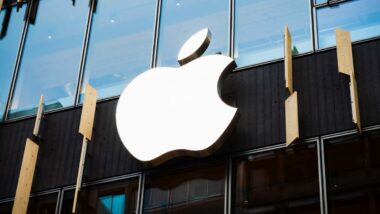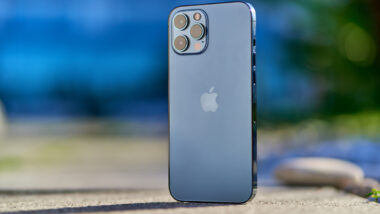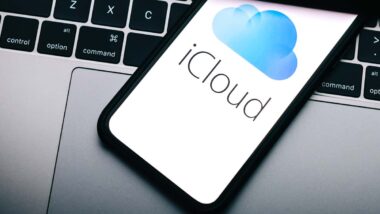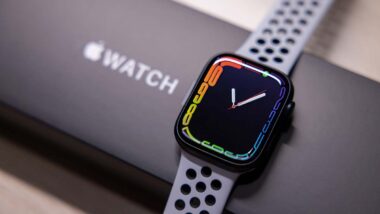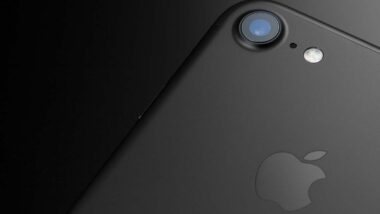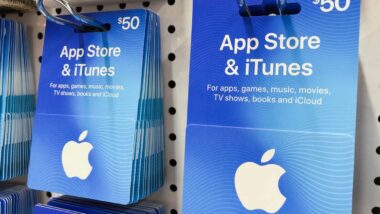Top Class Actions’s website and social media posts use affiliate links. If you make a purchase using such links, we may receive a commission, but it will not result in any additional charges to you. Please review our Affiliate Link Disclosure for more information.

The consumers claimed that if Qualcomm could stop Apple from importing iPhones fitted with chipsets made by companies other than Qualcomm, this could raise prices for consumers.
However, California federal judge Lucy H. Koh said that the consumers only speculated that Qualcomm’s bid would raise prices, and had not shown that any action by Qualcomm had actually harmed consumers.
She also determined that the plaintiffs did not successfully show that consumers were at an imminent risk of injury as a result of Qualcomm’s possible future agreement with Apple.
According to Judge Koh, “at bottom, plaintiffs cannot sustain their request for a preliminary injunction because their asserted harm relies on a speculative and attenuated inferential chain, which centrally includes intervening decisions by multiple independent decision makers.”
She went on to say that “because [the consumers] lack Article II standing to pursue the relief they seek, the court denies [the consumers’] motion for preliminary injunction on this ground.”
The Qualcomm, Apple price hike class action lawsuit is one of many lawsuits faced by Qualcomm, a company that makes the majority of chipsets used in phones made by companies like Apple and Samsung.
These lawsuits reportedly claim that the company’s effective monopoly over the industry has allowed them to license standard-essential patents to rivals, though the company reportedly promised to do so during the standard-setting process.
Firing back at these claims, Qualcomm has filed its own lawsuit against Apple, saying that Apple had infringed on Qualcomm’s chip patent, and would block Apple from using chips not made by Qualcomm. Qualcomm accuses Apple of violating patents and not sufficiently paying third-party royalty payments.
Qualcomm argues that this move would be in the “public interest,” and says that consumers won’t be harmed in Apple bans iPhones with Intel baseband chips from being imported into the U.S.
However, consumers in the Qualcomm, Apple consumer price hike class action lawsuit say that this move is just another attempt by Qualcomm to control the industry, and could result in higher phone prices for consumers.
The plaintiffs say that this move would hinder competition and innovation in the market, and they estimate that the market shortage that would result in Qualcomm’s monopoly on iPhone chips would hike the price of each iPhone sold by $47.
Qualcomm took issue with the consumers’ attempt to certify a Class of anyone in the United States who purchased a cellphone in the last seven years.
Though the consumers claim that all of these individuals were impacted by Qualcomm’s monopoly in the industry, Qualcomm says that the proposed Class, around 250 million people with more than 1 billion cellphones, would be unfeasible to litigate, because it would necessitate a “trial of enormous complexity.”
The consumers are represented by Kalpana Srinivasan, Marc M. Seltzer, Steven G. Sklaver, Amanda K. Bonn, Oleg Elkhunovich, Krysta Kauble Pachman and Joseph Grinstein of Susman Godfrey LLP, Joseph W. Cotchett, Adam J. Zapala, Brian Danitz, Mark F. Ram and Michael A. Montaño of Cotchett Pitre & McCarthy LLP, and Steve W. Berman, Jeffrey D. Friedman and Rio S. Pierce of Hagens Berman Sobol Shapirol LLP.
The Qualcomm Apple Consumer Price Hike Class Action Lawsuit is In re: Qualcomm Patent Licensing Antitrust Litigation, Case No. 5:17-md-02773, in the U.S. District Court for the Northern District of California.
UPDATE: On Sept. 27, 2018, a group of cellphone purchasers who filed a Qualcomm class action lawsuit have receivedcertification from the court.UPDATE 2: On Oct. 12, 2018, Qualcomm says that they should be able toappeal a California court’s decisionto certify a proposed Class of 250 million individuals in a lawsuit alleging the company gouged consumers by hiking the price of a chip used in most cell phones.UPDATE 3: On Jan. 23, 2019, consumers who purchased a cell phone since Feb. 11, 2011, may be affected by a Qualcomm antitrust class action lawsuit pending in federal court. A settlement has not been reached and no money is available at this time. However, this litigation is being dubbed “quite likely the biggest class action in history,” and may affect the rights of more than 250 million cell phone owners.Learn more here.UPDATE 4: On Jan. 23, 2019, Qualcomm wasgranted an immediate appeal of a massive certified Class of cellphone owners involved in a class action lawsuit alleging the company overpriced chips ubiquitous in mobile devices. Qualcomm contends that the newly certified Class of about 250 million consumers is “simply too large and unwieldy to manage” in a petition to appeal the decision brought to the Ninth Circuit two-judge panel.
ATTORNEY ADVERTISING
Top Class Actions is a Proud Member of the American Bar Association
LEGAL INFORMATION IS NOT LEGAL ADVICE
Top Class Actions Legal Statement
©2008 – 2024 Top Class Actions® LLC
Various Trademarks held by their respective owners
This website is not intended for viewing or usage by European Union citizens.




